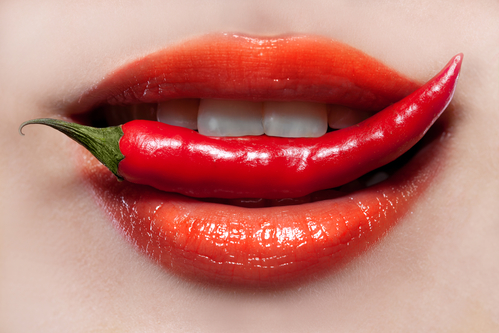Does Insurance Cover Dental Implants?
Dental implants are one of the most highly recommended treatments for missing teeth. They offer a long list of benefits, from promoting healthy bone structure to everyday comfort. However, this...

The inside of your mouth is by far one of the most sensitive areas when it comes to your body, and eating certain foods can lead to soreness on the roof of your mouth for a variety of reasons. But is a sensitive palate something to be concerned about? And at what point should you be notifying your dentist if you find your mouth pain lingering?
If you suffer from hay fever and you have experienced itchy mouth after eating certain fruits, vegetables or tree nuts, you may have oral allergy syndrome. Oral allergy syndrome is caused by cross reacting allergens that are found in both pollen and raw fruits, vegetables and some nuts.
Common symptoms of oral allergy syndrome are itchy mouth, scratchy throat, swelling of lips, mouth or tongue and itchy ears. Because the symptoms are due to heat labile allergens in these foods, cooking them will disrupt the structure of the allergen and the same foods that cause you an allergy raw will be tolerated if they’re cooked.
While any food can cause a reaction, the foods that are most likely to give someone a mild allergic reaction due to oral allergy syndrome are:
Soreness of the roof of your mouth after you eat can stem from a variety of possible causes including:
BURNS. Burning the roof of your mouth while eating something that is too hot can cause significant soreness to the sensitive area. Potentially lasting for several days, your delicate palate can easily be burned from hot beverages, melted cheese on pizza, and other types of similar dishes that reach a high internal temperature. Always allow your food to cool before eating to avoid burns.
BURNING MOUTH SYNDROME. As the name suggests, the primary symptom of burning mouth syndrome is a burning sensation in your mouth and on your tongue. Your mouth may also feel sore and become dry. Symptoms often increase throughout the day and you can experience excessive soreness after mealtimes.
COLD SORES. Cold sores don’t just form on the lips, they can also form on the roof of your mouth and can be extremely painful, especially when eating. Avoid foods that are spicy and acidic if you’re experiencing a fever blister to help decrease the cause of your pain and discomfort.
Certain foods are prone to making your palate more sore and sensitive than others. Foods that are very acidic, like tomatoes, tomato-based sauces, citrus fruits and juices and carbonated soft drinks can make your symptoms more intense. Spicy foods such as salsa, chili, jalapenos and curry can also make sore mouth symptoms worse.
The delicate skin on the roof of your mouth takes a lot of daily wear and tear. Occasionally, the roof of your mouth may become swollen or inflamed. If you’re experiencing other symptoms along with swelling, these other symptoms may help you determine what is causing your discomfort.
Pain
If pain accompanies the swelling in the roof of your mouth, some conditions can be quite serious and should be brought to your doctor and dentists attention. Conditions that cause pain and swelling include oral cancer, alcohol-related liver disease and hepatitis.
Dry Mouth
A common condition that can be an indication to several problems, dry mouth can be a symptom of a blockage in your saliva glands, trauma or burns from hot food or liquid.
Muscle Spasms
When the levels of electrolytes in your body fall too low, you can experience muscle spasms, contractions or cramping. Maintaining an adequate level of electrolytes and keeping your body hydrated will help to avoid these symptoms.
If the reason behind your discomfort is easy to identify, such as knowing the exact moment that bite of piping hot cheese pizza burned the roof of your mouth, you more than likely do not need to see a Dentist, and just need to allow your body time to heal.
If you’re experiencing severe pain accompanied by swelling that doesn’t diminish after a week, scheduling an appointment with Dr. Baudean DDS to have your mouth examined will help to give you peace of mind. A simple visual examination should be all that is necessary and we will help determine what is causing the problem.